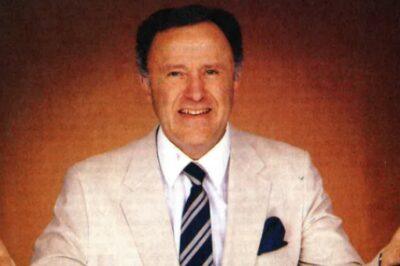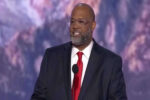When the charismatic renewal first began sweeping through Christendom during the last half of the 1960s, it often left in its wake joy, release and incredible outpourings of the Holy Spirit. But it also brought division, disillusionment and controversy. Many who received the baptism in the Holy Spirit suddenly found themselves ostracized or, at best, misunderstood.
Enthusiastic believers—when they joyously told about their new in-filling, hope and power—were asked to leave the non-Pentecostal and non- or anti-charismatic churches they loved. Others merely were removed from positions of authority or responsibility.
They were asked not to spread their new “heresy.” They were asked to restrain themselves from making too much of a display during Sunday worship. Their newfound joy was branded “a problem.”
As a result, quite a few no longer felt comfortable in the congregations and denominations where they had first found the Lord. New charismatic fellowships sprang up nationwide. Large and small churches emerged overnight. Some thrived. Some died.
Other charismatics were not sure how to start their own congregations. The solution seemed to be to stay in the churches of their youth and work to change attitudes. Some were successful, others weren’t.
Sometimes the solution was to begin visiting what already existed—to see if the Lord perhaps had a place waiting at an Assembly of God, a Pentecostal Church of God, a Four Square Gospel church, A United Pentecostal congregation or a Pentecostal Holiness church.
Often the unexpected was waiting. Some longtime Pentecostal churches recognized the new move of the Spirit as genuine and welcomed the disenfranchised newcomers into the fold.
Others didn’t.
Even when the welcome mat was extended, a difficult transition was in store. Many of these gung-ho-but-banished Baptists, disfellowshipped Church of Christ faithful, shunned Nazarenes, exiled Presbyterians, discouraged Mennonites and searching Catholics brought with them new ideas. They introduced interpretative dancing before the Lord, Christianized rock music, talk of social activism, overhead projectors displaying new praise choruses and requests for weekly communion.
Some Pentecostal churches backed away—ironically since they had been founded by similar Spirit-filled exiles at the turn of the century. The charismatics were just too different—and didn’t seem to understand or respect what had happened to the Pentecostal movement since the 1900s Azusa Street revival.
In their effort to be holy, many Pentecostals over the last 60 years had eschewed trappings of modern life—as had the Montanists, Moravians, Puritans, Shakers, Quakers and Amish before them. Alcohol, tobacco, dancing, fashionable dress, card playing and movies were forbidden, along with wearing make-up, jewelry or any other kind of “worldly” adornment. One denomination went so far as to prohibit wearing of wedding rings.
So, when charismatics, most of whom came from considerably more liberal traditions, descended on the Pentecostals, a theological firestorm erupted. Many Pentecostal pastors believed the Holy Spirit could not inhabit an “unclean” vessel. They taught that drinking, smoking, lying and other assorted sins had to be dealt with before a believer could receive baptism in the Holy Spirit.
Spirit-filled Episcopal priest Dennis Bennett summed up the clash of ideas in a speech at Calvary Temple, Seattle, Washington. “You Pentecostals get all cleaned up and then invite the Holy Spirit to come in,” he said. “I was a cigarette-smoking, martini-drinking Episcopalian clergyman when Jesus baptized me in the Holy Spirit. After the Spirit came, He cleaned me up from the inside out.”
But if many Pentecostals looked askance at the charismatics and were slow to welcome them, a few churches and pastors had a broader vision. They were able to accept what was happening among the charismatics as a genuine work of the Holy Spirit and to see that by blending the two traditions, both could be strengthened. One of those churches was First Assembly in Lakeland, Florida, pastored by Karl Strader.
Lakeland, population 58,000, is about halfway between the Tampa and Orlando metroplexes.
The first charismatic visitors to First Assembly were members of other Lakeland-area churches who started attending on Sunday nights at first, sitting in the back, looking ill-at-ease, apparently not knowing what to expect from the Pentecostals.
Strader, a former Methodist, understood how they felt.
He says he never proselytized and was careful not to encourage them to leave their churches, but the welcome at First Assembly was felt.
When several inquired about how to become members of the congregation, Strader responded by setting up a charismatic group that met every Monday night at the church.
A layman led it; however, Strader always attended and chose the weekly speaker. By integrating the newcomers into his congregation slowly, culture shock was held to a minimum—both for the traditional Pentecostals and the newcoming charismatics.
Soon the hospitality at First Assembly underwent further test when the Jesus movement broke out, bringing many young nonconformists into church for the first time. It was one thing for First Assembly members to accept a well-dressed Lutheran who had received the baptism in the Holy Spirit. It was quite another to welcome rebels with faded blue jeans and long hair into fellowship.
Again, the church had to accept Holy Spirit-filled newcomers, despite the kids’ effrontery toward longstanding decorum, in this case their unorthodox and seemingly defiant appearance.
“The hippies presented a real problem for many people.” Strader says. “Our members really had to swallow hard, but they accepted them and we integrated the Jesus People into the church.”
But, he adds, sure enough, as they began to mature in the Lord, the young rebels began to change.
“They finally got their hair cut and took baths and everybody was happy,” quips Strader.
And amid the change, Strader found himself examining what he taught and what he believed. From the pulpit he began pointing out the some of his congregation’s favorite traditions were not found in Scripture.
For example, there was the issue of “dancing in the Spirit.” “Pentecostals have always practiced dancing in the Spirit. At emotional times during camp meetings or revivals, they shut their eyes and began to sway or ‘dance before the Lord’ with their eyes open. That shocked many Pentecostals, but dancing before the Lord is scriptural.”
Any controversy that Strader might have dealt with over the charismatics and hippies in his congregation was mild compared to the one he would next encounter. Again, it was his willingness to receive from other traditions and his refusal to limit the Holy Spirit that caused problems. The issue was deliverance and it almost cost him his ministry.
Deliverance, the practice of commanding demons to leave a person, is common among charismatics. Strader, whose ministry was greatly influenced by men like Oral Roberts, Kenneth Hagin and Gordon Lindsay—all practitioners of deliverance—believed in it and introduced it to First Assembly. Miracles occurred as people began to be set free from emotional problems and destructive habits they had battled for years, but when word got out about what was happening, Strader found himself in hot water with the Assemblies of God.
For the most part, the denomination does not believe in the ministry of exorcism for Christian. It believes that a Christian can be oppressed by, not possessed by, the devil. In Lakeland, opposition was particularly strong because of the presence of Southeastern College of the Assemblies of God, one of the denomination’s leading Bible colleges.
Suddenly Strader found himself persona non grata among some of his peers. He lost some invitations to speak at other churches or conferences. Some other ministers were afraid he might use their pulpits to expound on doctrines of deliverance, or worse, attempt to pray deliverance for members of their congregations. Pastors who had been jealous of the success of his ministry or who just didn’t like him used the controversy as an excuse to vent their hostility.
Some denounced him openly, saying he was preaching false doctrine. There were calls to revoke his ministerial credentials. The persecution became so intense that Strader says from one day to the next he did not know if he would still be allowed to pastor in an Assemblies of God church.
Significantly, it was not members of his congregation who opposed him. It was outsiders, theology professors and some members of the denominational hierarchy.
At the height of the controversy, Strader turned for advice to the Rev. Thomas Zimmerman, general superintendent of the Assemblies of God, a man who had weathered a few storms himself.
“I think it was advice from Rev. Zimmerman that really salvaged the situation for me,” Strader says. Zimmerman told Strader that the Assemblies of God allows its pastors a great deal of diversity in what they preach from their pulpits, but that if he became contentious or hostile toward his fellow ministers, he would be in trouble.
Strader took that advice to heart. He continued to practice deliverance in his own church, but if asked to speak elsewhere, he avoided the subject. When he attended church conferences he submitted to those in charge and kept quiet.
“It was rough,” he says. “I had to prove to my brethren that I was loyal to them. I continued to support my fellowship financially and I showed up at ministers’ meetings even when I wasn’t sure they wanted me there.”
Gradually, the tide began to shift. As Strader proved he was committed to the Assemblies of God and his fellow pastors, they began to accept him and afford him at least a grudging respect.
“Even though I’m still a source of embarrassment to some of them, most of the people who opposed me respect me now,” he says. “I don’t think all of them agree with me or want my ministry in their church, but I’ve proven myself and they accept me.”
As a measure of just how much he is accepted by his peers, Strader serves as a general presbyter for the Assemblies of God in the Peninsular Florida district. That means he is one of the three ministers who represent this district at the denomination’s General Presbytry meetings.
Looking back on the controversy, Strader says he believes some of the problem amounted to just a misunderstanding of terms.
“I think a lot of people practice deliverance but don’t know it. Old fashioned alter calls include deliverance. Demons leave people when the Spirit of God comes in,” he says. “But I also believe that counseling sessions where demons are called out of people are valid. Not more than 1% of all Assemblies of God churches practice that.”
In places where the problem is mainly semantic, Strader has been willing to modify his technique. “I’m willing to call a demon an attitude, if that’s what you want,” he says. “Although it makes you wonder sometimes when an ‘attitude’ talks back to you in a different voice. I’m totally flexible in semantics and methods, but not in principles,” he adds.
One lasting positive effect of the difficulty lies in Strader’s attitude toward his fellow ministers, within and without the Assemblies of God. “I don’t believe in criticizing another brother publicly. The Bible says that if I have a problem with someone I’m to go to them personally. That’s why you’ll never hear another minister cut down from my pulpit.
He doesn’t allow anyone else to take pot shots at other pastors from his pulpit either. He recalls an incident that occurred several years ago. It was during the height of controversy over “shepherding.” A minister who was scheduled to speak at First Assembly had publicly criticized Derek Prince, one of the movement’s leaders.
“I wasn’t sure exactly how I was going to handle the situation,” Strader says. “I had a great deal of respect for this man and he was considerably older than I. I didn’t want to be disrespectful, so a few minutes before the service I drew him aside and said, ‘Brother, could I share with you just how much Derek Prince’s ministry has meant to me?’ After I finished sharing, we went out on the platform and he never said a word about Prince.”
Amid the changes and controversies, First Assembly continued to grow. By no means was the growth attributable merely to the influx of charismatics. First Assembly was an evangelistic church with multiple outreaches.
Strader had begun preaching his deep conviction that Christians must move beyond the four walls of the church. He told his congregation that they should be a blessing to the community. He encouraged them to take part in civic groups and community endeavors. He set the example by serving as chairman of the local Civil Service Board, a position he held until recently.
In the community, Strader is an imposing and easily recognized figure. One or 2 inches over 6 feet tall with broad shoulders and a trim physique, he has a boldness smoothed by a blunt sense of humor. “I like to get people laughing and then give them the shaft,” he says.
He is surprisingly soft-spoken and gentle, but radiates a quiet strength. In the pulpit he is a forceful speaker. Raised Methodist, educated at the conservative and fundamentalist Bob Jones University in Greensville, South Carolina, he likes to describe First Assembly as fundamentalist, evangelical, Pentecostal, charismatic and trans-denomination.
“We want to teach everything the fundamentalists teach, but thoroughly evangelistic in soul-winning, totally Pentecostal in our emphasis and charismatic in the sense that we accept change,” Pastor Strader explains.
He has made a lifetime habit of memorizing Scripture and can quote long passages. He fills his sermons with Scripture, 35-150 verses in each message. J. Foy Johnson, district superintendent for the Peninsular Florida District of the Assemblies of God, calls Strader a “great Bible preacher.”
A man of deep convictions, Strader has nevertheless been flexible enough to blend the diverse elements of his congregation into a workable whole. While holding firmly to the fundamentals of the faith and the Pentecostal traditions of the Assemblies of God, he has allowed the Holy Spirit free rein.
“We’ve tried to keep up with what the Holy Spirit is doing,” Strader says. “We’re not a traditional church. We don’t want to be opportunists, but we do want to take advantage of the direction in which God is moving.”
When Strader began pastoring First Assembly in April 1966, the church was already considered successful by many. It had just built a new sanctuary and was averaging 325 in attendance on Sunday morning. After 18 years of his leadership, the church now has 5,000 in attendance in the three morning or two evening services each Sunday.
The church sponsors a daycare center and the Evangel Christian School with grades kindergarten through 12. Enrollment is 800 students and growing. It also owns a 100,000-watt FM radio station, WCIE (which stands for Where Christ is Everything). It produces a TV program, Family Life, which focuses on the Christian home and a quarterly magazine, Come Together, that acquaints its readers with behind-the-scenes personnel at First Assembly.
In 1982, recognizing that the present sanctuary had become inadequate for its growing membership, the church purchased 488 acres of land 6 miles north of its current facilities. The property called the Carpenter’s Home had been used as a retirement center for members of the carpenter’s union.
Now the 138,000-square-foot building is being renovated to house the Evangel Christian School and will accommodate 1,700 to 2,000 students. An old water tower standing next to the Home is being converted into a prayer tower. A glass elevator will be constructed outside the tower to carry visitors up seven floors to the top where they will have a breathtaking panoramic view of Lake Gibson and the surrounding countryside.
In November 1982, groundbreaking ceremonies were held at the site to mark the beginning of construction. The sanctuary, which is designed with a Spanish motif, will seat more than 10,000 when completed in early 1985 and will cost approximately $9 million.
It has been a long odyssey for Strader from his boyhood hometown in Homestead, Oklahoma, to being pastor of one of the largest Assemblies of God churches in the country. He was reared in the Oklahoma panhandle in a Bible-believing Methodist church. He was saved at 8, totally committed his life to Christ at 16 and was called into the ministry at 22.
He attended Bob Jones University, where he received his B.A. and B.D. degrees. It took him seven years to complete his studies at Bob Jones, taking a full load of classes and often working two or three jobs at a time. He describes his experience there as the “boot camp” of this life. “I was so poor I literally didn’t have the money to buy an ice cream cone,” he says. “But those hardships prepared me well for later experiences.”
Shortly after he graduated from Bob Jones at age 25, Strader receive the baptism in the Holy Spirit after he was prayed for by the pastor of the Assemblies of God church in Greenville. It was an experience that was to revolutionize his life and his ministry.
He describes the change in his book, Mountain Moving Motivation.
“I was a young preacher right out of the seminary, but I lacked anointing when I preached. It was amazing what happened in such a short period of time… I spoke with power and authority. The change in me must have been a little like the change in Peter. Less than two months before his Day of Pentecost sermon where 3,000 were saved. He had denied Christ three times; the difference in his ministry – and mine – was the baptism in the Holy Spirit.”
Since Bob Jones was definitely anti-charismatic, as were most denominational churches in those days, Strader began ministering with the Assemblies of God.
The hostility of his alma mater has continued. Several years ago, after a photo was published showing Strader at a charismatic conference with a group of Roman Catholics, Episcopalians and Methodists, the school sent him a letter disowning him and asking him never to tell anyone that he had attended there.
For three years after Strader left college, he served as dean of men at Southeastern Bible College in Lakeland and was district Christ’s Ambassador (youth) president for the Peninsular District of the Assemblies of God. He was district assistant superintendent for four years. During that time he and his family attended First Assembly – his future pastorate – though his jobs kept Strader on the road and out of town most of the time.
In 1960 he was called to India where he pastored churches in Farmburg, Gary and South Bend. Then in 1966 he was asked to return to Florida and pastor First Assembly.
Although First Assembly was a vibrant and growing congregation, it was not an easy assignment for Strader. He was a young pastor, just 38, and was replacing his friend J. Foy Johnson, a man of enormous personal popularity who had been elected by the ministers in the denomination to the office of District Superintendent where he would be Strader’s boss.
But Strader was not intimidated. “I’ve always had a goal of reaching my full potential and I’ve shied away from comparing myself to others or being in competition with them,” he says.
Determined to get to know this new flock personally, one Sunday soon after he arrived, he had a photographer take pictures of the congregation row by row. Then he passed around a sheet of paper and asked everyone to sign it. He matched up the photos with the signatures and studied them until he knew everyone at least by name. Efforts like those quickly endeared him to the congregation.
Most people in the church at that time were traditional Pentecostals, but from the beginning of his ministry there, Strader played down denominational ties. Be grateful for your denominational heritage, he told them, but don’t let denominations build walls between believers. In his teaching he emphasized the basics – prayer, fasting, giving and service.
By the late 1970s First Assembly had grown until it outstripped its facilities. Pastor Strader and the church deacons began to pray and look for sites on which to expand.
The church initially investigated property within the city. They found a tract of land on Lake Parker, which would have afforded them prime acreage in Lakeland. However, when they approached the city with their plans, local officials expressed concern that the area did not have adequate roads or sewage facilities to handle the increased traffic that a 10,000-seat auditorium and church complex would bring. Rather than wage a costly legal battle or risk losing the support they had so carefully cultivated in the community, First Assembly agreed to look elsewhere.
They decided then to approach the carpenter’s union about buying the old Carpenter’s Home retirement center and grounds on the edge of town.
The land had been on the market for some time and several groups were bidding on it. It looked like an impossibility for First Assembly to be able to afford the spot.
But, in what they believe was truly a miracle, God gave First Assembly favor with the union administrator and he agreed to sell them the prime property, including the Carpenter’s Home, for $16,000 an acre, or about $7.8 million.
Once they had bought the land, another problem arose. The church obviously had no need for almost 500 acres of land. They calculated the most they would need for the sanctuary, the school and ample parking would be 125 acres. The rest they decided to sell. It took almost a year to work out all the arrangements, but they found buyers for all the excess property. One large tract of land was sold to a developer who is turning it into a subdivision of single-family houses and condos.
Many members of the church have already purchased homes there and between 4,000-5,000 members will be within walking distance of the sanctuary once it is completed. First Assembly hopes eventually to have a shuttle running throughout the community to the church.
The church also plans to build a retirement community, which will include 304 apartments, rest home facilities and a 40-bed facility for those elderly who require continuous care. The church hopes to begin construction on this community this year.
Although the ministry at First Assembly is exciting by any standard, one of the most impressive things about the church is the spirit of humility that pervades it. Its present facilities are comfortable, but not extravagant, and the new church, despite its luxuriant setting, is also modest.
First Assembly has never boasted of its own accomplishments. If anything, it tends to shy away from publicity. The Rev. Jim Campbell, who has given oversight of the new construction, was even concerned about the tone of this article.
“Please don’t make a big issue out of the amount of property we bought or the size of the building or any of those things,” he asked. “We’re not trying to impress anybody. For us, the important thing is just that we are trying to minister to people’s needs.”
While frequent staff turnover in large ministries is common, at First Assembly it is almost unknown. Most of the associate ministers have been there for at least seven years and Jim Campbell has been there for 15. Foy Johnson says that one of Strader’s greatest strengths is his ability to surround himself with talented people.
“Karl has had the wisdom to place in leadership men who complement his ministry, who are strong in areas where he is weak, such as counseling or financial expertise. That’s one of the marks of a great leader,” Johnson adds.
Strader has tried to avoid building a church centered on a charismatic leader. He shares favor and responsibility with his associates.
“I am a servant, not a lord,” he says. “My job with the 16 other pastors on staff is not for them to help me with my ministry, but for me to let their ministries bloom and flourish. That’s why we have longevity in our associates. Jesus said, ‘You are right to call Me Lord, but I call you friend,’ and that’s the attitude I have to have.”
Sherry Andrews is the coauthor of Ashes to Gold with Patti Roberts Thompson. Miss Andrews is a former associate editor of Charisma.






Leave a Comment
You must be logged in to post a comment.